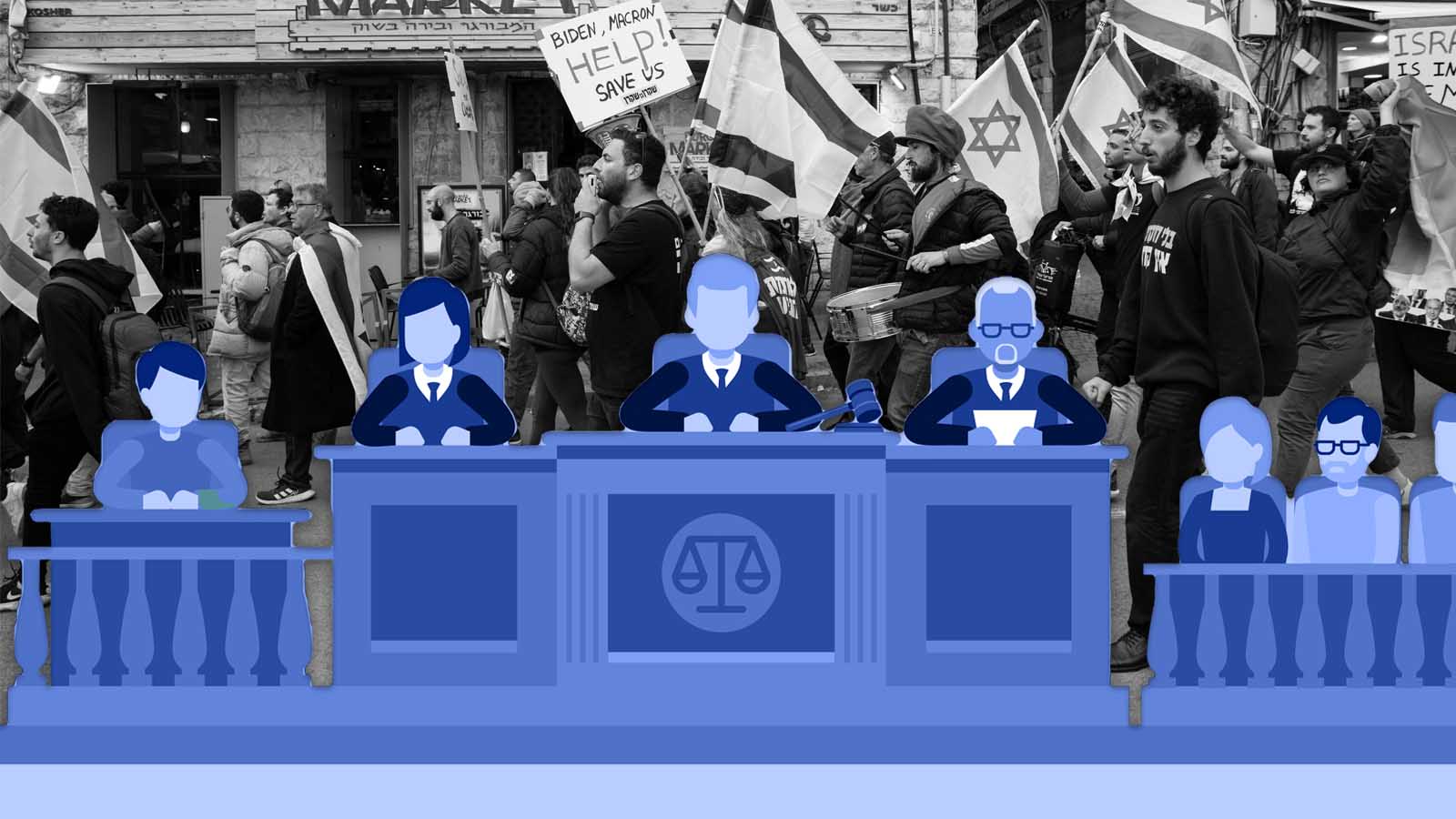UK to quit Unesco?
Proposals for Britain to follow Israel and US in leaving the UN body

A free daily email with the biggest news stories of the day – and the best features from TheWeek.com
You are now subscribed
Your newsletter sign-up was successful
International Development Secretary Penny Mordaunt is urging fellow Cabinet ministers to back plans to withdraw the UK’s £11.1m funding from Unesco, according to reports.
“Mordaunt’s department ranks Unesco as its worst-performing multilateral agency,” says The Times. “She believes that its work does not meet her spending criteria for international aid.”
But some ministers “are apparently concerned at the symbolism of such a move, given it would follow a path trodden by Donald Trump last year”, says Politico’s Jack Blanchard. Theresa May vetoed a similar proposal by Mordaunt’s predecessor Priti Patel in 2016.
The Week
Escape your echo chamber. Get the facts behind the news, plus analysis from multiple perspectives.

Sign up for The Week's Free Newsletters
From our morning news briefing to a weekly Good News Newsletter, get the best of The Week delivered directly to your inbox.
From our morning news briefing to a weekly Good News Newsletter, get the best of The Week delivered directly to your inbox.
So what is Unesco and why are some nations quitting it?
What is Unesco?
The agency was “founded in the ashes of World War Two to protect the common cultural inheritance of humanity”, says Reuters.
Officially known as the United Nations Educational, Scientific and Cultural Organization, Unesco is best known for designating and protecting archaeological and heritage sites. A total of 180 organisations in the UK and Overseas Territories have formal links to Unesco, with 31 Unesco World Heritage sites in Britain.
A free daily email with the biggest news stories of the day – and the best features from TheWeek.com
However, the agency has also “often drawn the ire of Israel and the Trump administration for a series of decisions, including the listing of Hebron, a city in the southern part of the occupied Palestinian territories, as a Palestinian world heritage site”, The Guardian reports.
Why are the US and Israel withdrawing their membership?
In October 2017, the US and Israel announced they were planning to leave Unesco at the end of 2018. Both countries cited “continuing anti-Israel bias” from the organisation as the reason.
Israeli Prime Minister Benjamin Netanyahu recently said that “in withdrawing from Unesco, “Israel and the United States made a clear moral statement that Unesco’s anti-Semitism will no longer be tolerated”.
The US “has long used Unesco as a stage for political gestures”, says Quartz. In 1984, the Ronald Reagan administration withdrew the US from Unesco, “accusing it of being pro-Soviet, anti-Israel, and anti-free market”, the website adds. President George W. Bush later rejoined Unesco, in 2002.
Despite repeated overtures from the agency to rescind their upcoming withdrawal, the US and Israel have maintained they will leave on 31 December 2018. “I think it’s a catastrophic decision,” Daniel Rondeau, a former French envoy to the body, told Reuters. “It’s a fracture that seriously jeopardises the very nature of Unesco - its universal dimension - and the very concept of multilateralism.”
Why does Mordaunt want to leave?
Like her predecessor Patel, the prominent Brexiteer believes that Unesco’s work does not meet her spending criteria for international aid. Mordaunt’s reported proposal would be in line with her desire to cut the foreign aid budget and allow private investment in the UK’s overseas aid fund.
The reemergence of the plan to leave the agency has prompted a furious response from Labour.
Shadow foreign secretary Emily Thornberry noted that a pause in Unesco funding during the Thatcher government was criticised by ex-PM Edward Heath as “the growth of a nasty, narrow-minded nationalism which believes that we can survive without the rest of the world”.
Thornberry added: “If Penny Mordaunt was truly worried about the organisation’s financial difficulties, she would stay inside it and help reform an organisation that Britain helped create.”
Will Mordaunt be vetoed?
The international development secretary’s wishes have “triggered concern among colleagues including Theresa May and Michael Gove, as well as in the Foreign Office”, says The Times.
Just last month, the British ambassador to Unesco, Matthew Lodge, said that the organisation had turned a corner, in a direct contradiction of Mordaunt’s views. Addressing the Unesco executive board, he said: “Although challenges remain, Unesco’s finances are on a sounder footing. The political disputes that have plagued this organisation for too long have been de-escalated and there is a renewed sense of optimism for the future.”
Responding to reports of Mordaunt’s alleged proposals, a Department for International Development spokesperson said: “There has been no change to our funding commitment to Unesco. The UK is working closely with Unesco and other member states to ensure it makes crucial reforms to deliver the best results and value for taxpayers’ money.”
-
 The environmental cost of GLP-1s
The environmental cost of GLP-1sThe explainer Producing the drugs is a dirty process
-
 Greenland’s capital becomes ground zero for the country’s diplomatic straits
Greenland’s capital becomes ground zero for the country’s diplomatic straitsIN THE SPOTLIGHT A flurry of new consular activity in Nuuk shows how important Greenland has become to Europeans’ anxiety about American imperialism
-
 ‘This is something that happens all too often’
‘This is something that happens all too often’Instant Opinion Opinion, comment and editorials of the day
-
 Netanyahu’s reforms: an existential threat to Israel?
Netanyahu’s reforms: an existential threat to Israel?feature The nation is divided over controversial move depriving Israel’s supreme court of the right to override government decisions
-
 A country still in crisis: Lebanon three years on from Beirut blast
A country still in crisis: Lebanon three years on from Beirut blastfeature Political, economic and criminal dramas are causing a damaging stalemate in the Middle East nation
-
 The past controversies of Benjamin Netanyahu
The past controversies of Benjamin NetanyahuUnder the Radar The Israeli prime minister has been in hot water before
-
 Israel on edge, Netanyahu hospitalized ahead of Supreme Court overhaul vote
Israel on edge, Netanyahu hospitalized ahead of Supreme Court overhaul voteSpeed Read
-
 Jenin and the endless cycle of Palestinian displacement
Jenin and the endless cycle of Palestinian displacementfeature Refugee camp at the heart of a struggle around demographics, displacement and mobility
-
 Pros and cons of cash transfers in humanitarian aid
Pros and cons of cash transfers in humanitarian aidPros and Cons The number of people around the world receiving direct monetary aid has risen 240% since 2020
-
 Netanyahu brings Israel to a crossroads
Netanyahu brings Israel to a crossroadsfeature The prime minister was ‘forced to pause’ his ‘ambitious plan’ to weaken country’s supreme court
-
 Why are Netanyahu's judicial reforms so controversial?
Why are Netanyahu's judicial reforms so controversial?In Depth Opponents have warned the government's suggested reforms could be the end of democracy in Israel